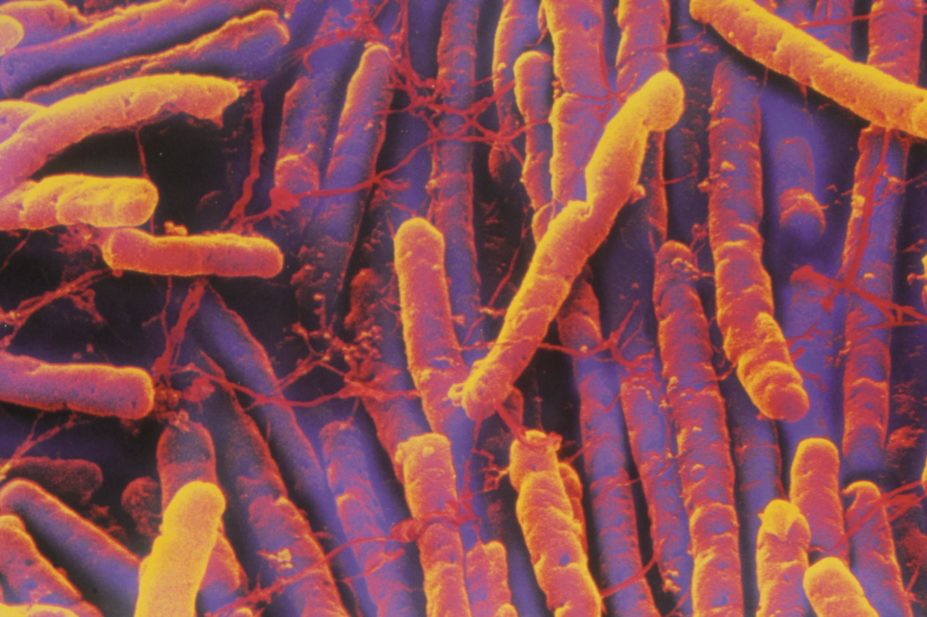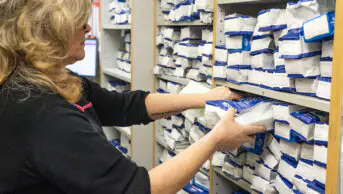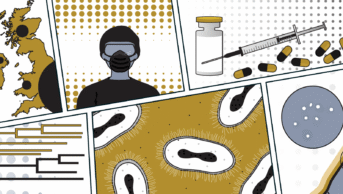
D Phillips / Science Photo Library
An age-old treatment has shown remarkable clinical cure rates for Clostridium difficile infection (CDI), or infectious diarrhoea, achieving far better outcomes than antimicrobial therapy.
Faecal microbiota transplantation (FMT), introduced in the 1950s, restores colonic flora by introducing healthy bacterial flora through infusion of a donor stool. It was successful in about 90% of cases considered by researchers who presented several FMT-focused study results at the annual scientific meeting of the American College of Gastroenterology, in Philadelphia on 17–22 October 2014.
FMT expert Mark Mellow, a former director of the Digestive Health Center at Integris Baptist Medical Center in Oklahoma City, said CDI was the most common hospital infection, but that an “ick-factor” means that recurrent CDI patients are given repeated courses of antibiotics instead of the more effective FMT.
A study, led by Zain Kassam, of Massachusetts Institute of Technology, presented at the meeting, found that in 2011, more than 340,000 cases of CDI were identified in US hospital patients, of which 8% died.
Mellow applied known CDI statistics to Kassam’s numbers. “If as many as 25% of patients with CDI get recurrences — and, in turn, about half of that number get multiple recurrences — it’s significant that about 10% of 340,000 patients will require FMT,” he said.
Discussions at the meeting addressed practical limitations of using fresh donor stool in patients with recurrent CDI. These included difficulty in preparation, timeliness of collection, administration and standardisation of the sample. The study’s primary investigators — Herbert DuPont and Zhi-Dong Jiang both from the University of Texas Health Science Center at Houston School of Public Health — wanted to determine the success rate when using more convenient frozen faecal microbial extracts.
The team investigated the efficacy of fresh, frozen or freeze dried FMT, administered by colonoscopy, from the same donors. They found equivalent success rates through all three methods with respect to significant shifts in faecal flora and a decrease in harmful bacteria.
“This small study demonstrates that the more convenient frozen faecal flora can be used routinely in FMT,” said Mellow, adding that, given the demonstration of frozen stool’s efficacy, it should be possible to deliver the frozen substance orally in powder form. “However, the powder form would need to be tested for efficacy in sicker, hospitalised patients with CDI.”
A discussion of safety concerns by Desmond Wilson and Colleen Kelly, both from the Alpert Medical School of Brown University, found that adverse events associated with FMT, such as mild or transient gastrointestinal symptoms, were unlikely to be related to the procedure. Mellow said the data demonstrate that FMT is generally well tolerated.
In a third presentation, Monika Fischer of Indiana University-Purdue University focused on results from using FMT to treat CDI patients who also had inflammatory bowel disease (IBD). The overall success rate of FMT, involving two or more FMT procedures, was 90%. The cure rate with a single FMT was somewhat less than when given to patients without IBD. The clinical course of IBD improved or did not change in most patients, and worsened in a minority of cases.
Mellow noted that a patient who presents with CDI should be treated quickly and aggressively, but many are put off by the treatment because of its unpleasant connotations.
“The hope is that continued FMT research — about the protocol’s effectiveness and potential to be delivered in oral form — will increase FMT awareness and options in the medical community,” he said.


